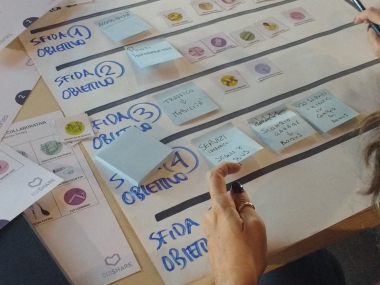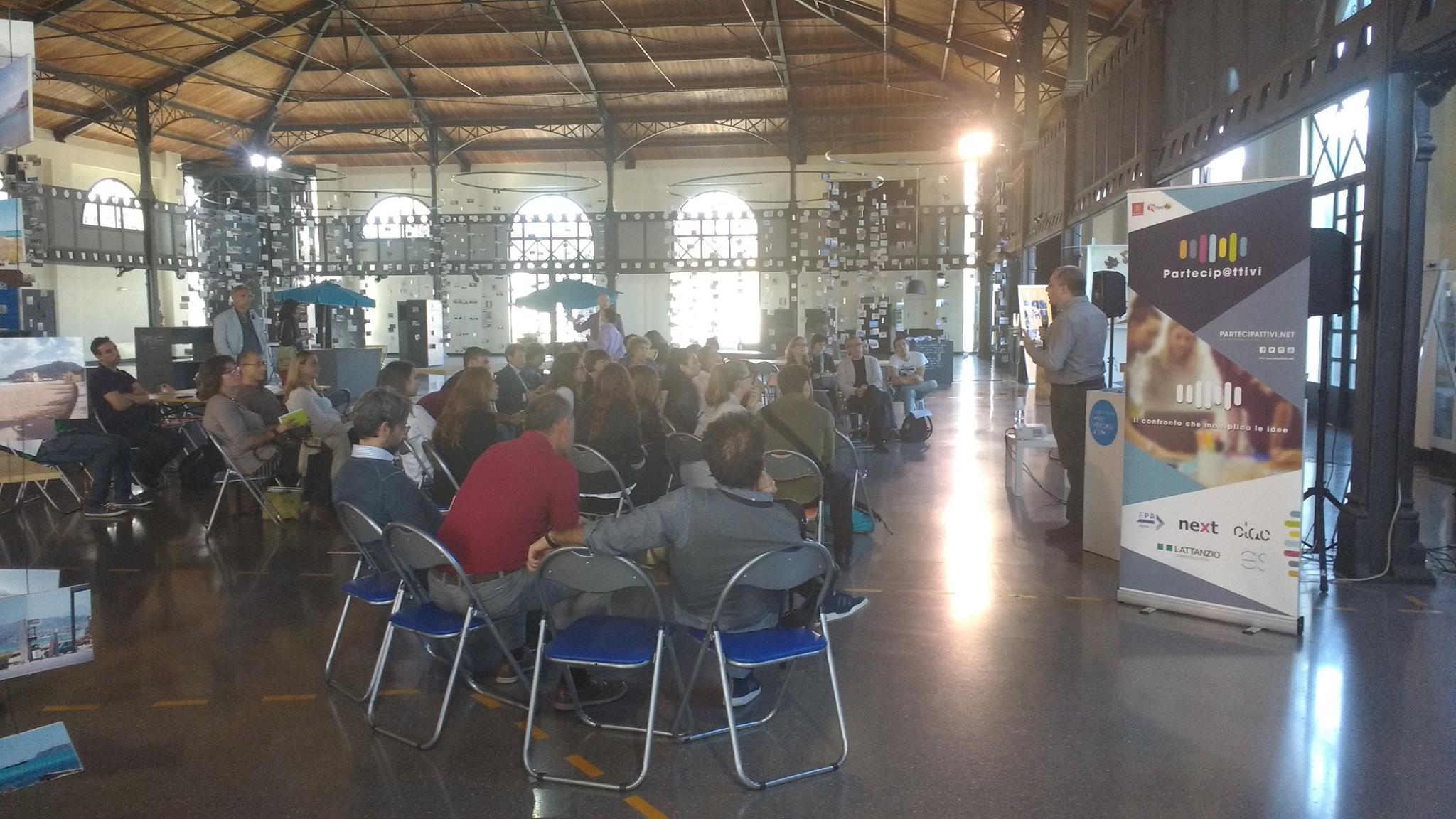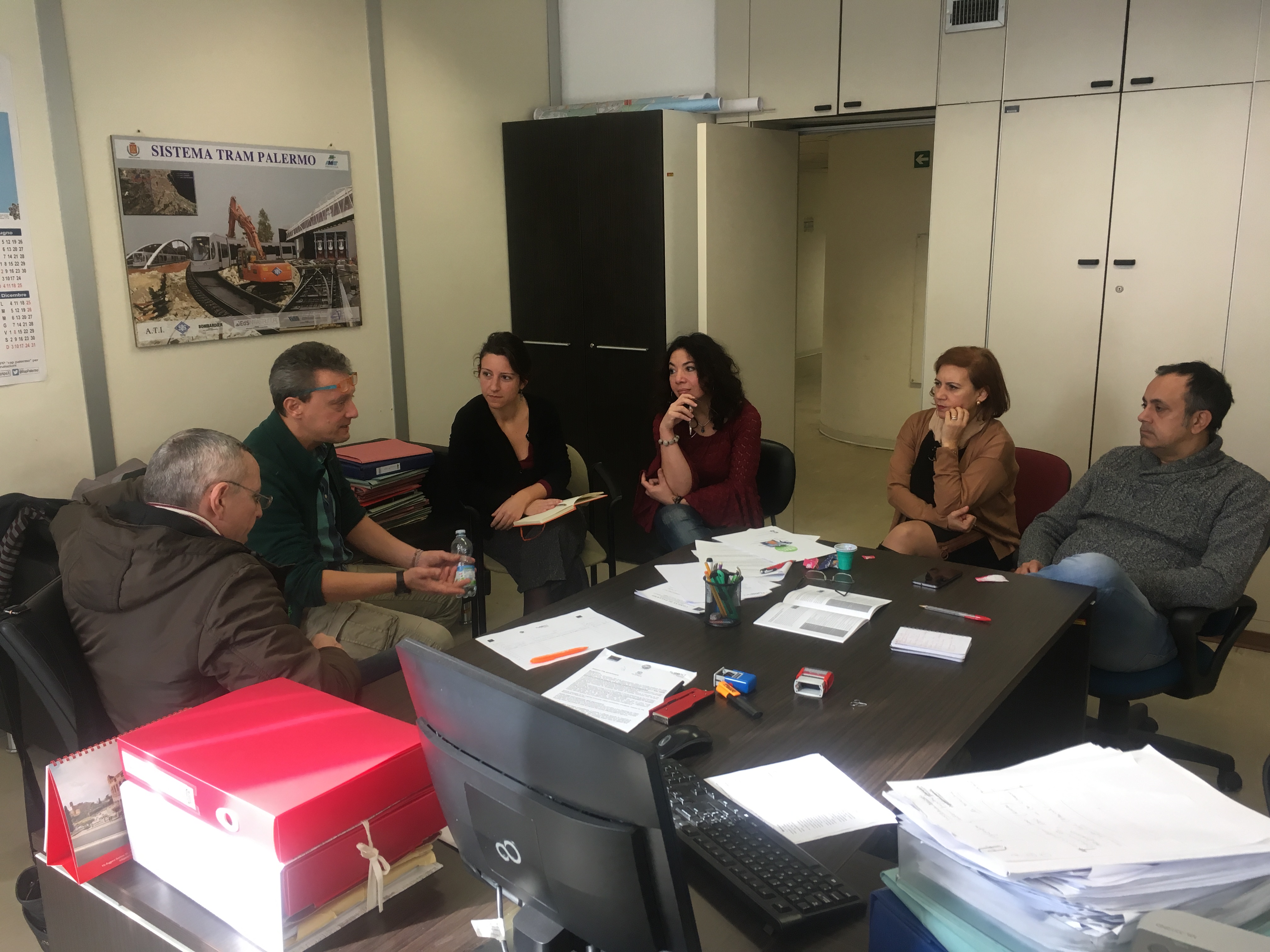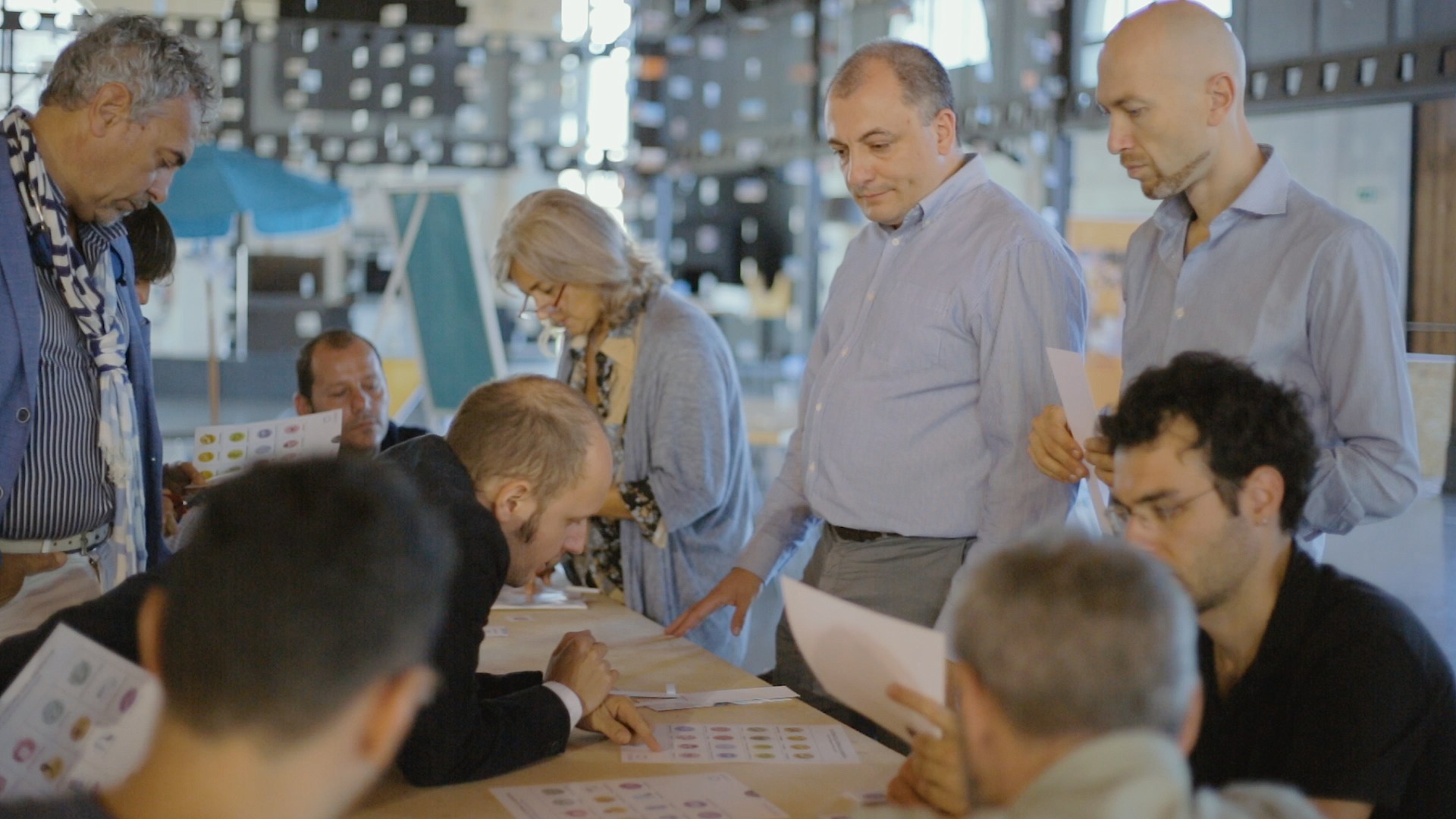Palermo bets on social media governance
Edited on
19 January 2018Palermo bets on social media governance to restore a climate of trust between citizens and institutions in the field of urban mobility. Within the process of reduction of the Local Action Plan Palermo’s URBACT Local group is working to the integration of its communication tools and to the strengthening of good practices of social media governance in order to restore a feeling of trust between citizens and the public administration in the field of urban mobility.

The situation of urban mobility in Palermo is quite complex and critical and intertwines with urban dynamics of great importance for the city’s sustainable development. The growth of urban sprawl in the last ten years together with the lack of an efficient public transport system caused the increase of road traffic of incoming and outgoing fluxes from the city so provoking a worsening in the general situation of the urban mobility system.
Moreover, urban mobility represents an issue of relevance for Palermo’s sustainable development because it has an impact not only on citizens’ quality of life but also on tourists’ hospitality experience. Due to the internationalization strategies adopted by the municipal administration in the last years the city has become a favorite destination for incoming touristic flows, mostly for the interest raised by its historical center, one of the biggest in Europe, where it’s monuments belonging to the Normans period have been recognized as Unesco heritage. Moreover, Palermo’s attractiveness is likely to rise thanks to some big cultural events that will take place during 2018: the initiatives within the framework of Palermo Italian capital of culture and the international art exhibition Manifesta 2018.
 |
In order to face all the challenges the recent dynamics of urban transformation arise the municipal administration arranged a set of infrastructural interventions aimed at improving the urban mobility system and turn the city to be more accessible and livable not only for citizens but also for tourists. Among them are: the doubling of the railway link between the city center and Punta Raisi airport, the completion of the metro ring and the construction of the tramline. Besides, car sharing and bike sharing have been already set up and new bike lines have been created to encourage an alternative and sustainable mobility. A particular effort has been put on the promotion of the historical city center where limited traffic zones have been established and some streets and squares have been pedestrianized.
The process of closuring to traffic is still ongoing and although it is essential for the promotion of the Unesco heritage and the tourist and economical development of the area it still represents a big challenge for the Municipality of Palermo. As a matter of fact, citizens always showed a strong distrust towards the changes fostered by the administration. In order to face this resistance, the municipality recurred to various tools able to communicate and involve citizens on the ongoing transformations.
 |
In 2013 the realization of an Electronic Town Meeting on the issue of pedestrianization allowed to identify in a shared manner the areas to be closed to traffic and the modality of closure.Then, the web portal “Partecipa” has further promoted the public debate by moving it on the web with the aim of collecting proposals and clarify doubts. The Municipality’s effort in involving citizens now is continuing trough the participative initiative “Partecipattivi” that is collecting civil society’s suggestions and proposals on main urban issues thanks to the use of online forum and innovative methodologies for discussion. One of the most innovative instruments adopted is Sharitories, a methodology developed by OuiShare in collaboration with Forum PA, in order to activate practices of collaborative economy among citizens and institutions thanks to the application “ Toolkit per Territori Collaborativi “(CTT). Some of the issues discussed regard the city livability and tourism marketing strategies.
Within these workshops citizens identified the improvement of urban mobility system as one of the main challenge the city has to face in order to implement effective initiatives for the touristic promotion of the historical city center and its Unesco heritage.
 |
Drawing on the proposals emerged during these activities, the URBACT local group is working on the improvement of social media governance processes, seen as key elements for the development of the local urban mobility system. As a matter of fact, improving the mobility infrastructures it is not sufficient to reach this goal. It is also fundamental to accompany these processes of urban change by involving civil society and taking care of the relationship between citizens and institutions. Only so doing it is possible to create a climate of trust able to modify mobility behaviors, to spread knowledge of the new services available and foster their use.
In view of the priorities shed in light during the participative activities the goal the URBACT local group is now addressing through the process of reduction of the Local Action Plan regards on the one side the integration of the many communication tools the Municipality set up in the field of Urban mobility: the sustainable mobility web portal and the tourism web portal, the website for open data, the different communication instruments provided by local stakeholder as the Municipal Police and Amat, the municipal company for public transport. On the other side another goal concerns the strengthening and widening of good practices of communication already existing in the field not only within the administration but also outside it. Among these for example is the twitter account @PalermoPm run by the Municipal Police whose news are automatically linked to other municipal web media (the official facebook page and the portal of sustainable mobility), and the thematic blog on mobility managed by the ngo Mobilità Palermo. Then, the guidelines coming out from the local action plan will be fundamental in order to activate virtuous circles of urban change and resolve the distrust crisis among citizens and institutions that affected Palermo in the past years.
Municipality of Palermo
Submitted by fvirgilio on
